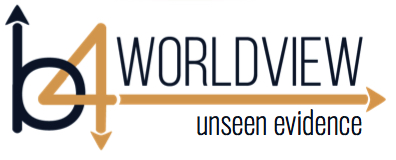
Key Thought for this session:
“Ultimately I can go only one of two ways — which path do I take?”
Thank you for your answer. Let’s take just a few minutes to analyze the different answers that were listed in the question. We just want to help make sure you understand how to properly evaluate each of the case studies coming up next in this section. As you begin your evaluation of a case study, the first step is to determine whether it is a column A or column B way of thinking. In this previous one, we can observe that Jared has made several true statements about God and our inability to completely understand Him. But Jared also asserts that we cannot really know truth about God because it is dependent on OUR processes of continual discovery. This assertion seems to deny the possibility that God can, and does, fully reveal aspects of absolute truth to us. That means that Jared clearly has a Column A Carnal identity, and does not operate in this case with a Column B Spiritual identity.
So, with this in mind, the question asks us to identify the response that would help Jared to consider a column B perspective.
Notice the first answer is not the best because it tends to confirm the Column A core assumption that truth is best known based on the majority view, and not based on the originator’s disclosure.
The same would be true of the second response because it tends to confirm the Column A core assumption that truth is best discovered by physical observations.
The third response is the best one to help Jared consider his reasoning from the perspective of a column B identity, because it moves the conversation to consider truth as coming from a source other than what we can physically observe—which would be consistent with the core assumption that truth is disclosed by the originator.
The fourth response is not the best, because even though it may be what you actually think, the question did not ask whether or not you agree with Jared in this case study, but it asked how you could best move the conversation to consider reasoning from a Column B identity.
Hopefully, this analysis will help you think through the rest of our case studies.
So, ready to move on to the next one? We will listen to Lacey explain to us how her assumptions of trust affect how she views our nation.
In this case study, Lacey states the following:
“I truly understand the preponderance of Christianity in America. We were birthed as a Christian nation. But there are so many things that we have yet to understand. It seems like the more we know, the more we know that we don’t know.
“We as humans need some sense of stability, something to rely on. Many have chosen to rely on the concept of a God. These are reflected in a myriad of religions. You’ll find all kinds of allusions to God in our founding documents. We have ‘in God we Trust’ on our currency, and our pledge of allegiance notes ‘one nation under God.’ But is religion just a crutch? Is it just the influence of culture? Do we really need religion to be successful as a nation?
“Have you noticed that Christianity has been on the decline? I think this can be traced to our founding as well. Our nation was founded with reliance on contemporary thought, at the time traceable to the Age of Enlightenment. The whole concept of ‘consent of the governed’ was a departure from the religious and outdated concept of ‘divine right.’ We knew that no monarch should be able to claim God’s delegated authority, so we placed our authority in the power of the people. This is the root of democracy, from where we get our liberty. ‘WE THE PEOPLE have formed a more perfect union.’ And Christianity has increased at times, but we know it is really waning. We are a nation under a Constitution—not really under God (so to speak). And our Constitution has empowered each individual to think for himself what is best. Our governing authorities—legislative, executive, and judicial—have empowered us to agree on what is best. Our trust is really in us, as it should be. And we have grown, and we have prospered. And we will continue to do so.
“This is really our trust—it is us. U.S. United States. US! And we are doing quite well. Thank you. And we will do better. We just need to look at what we have and to practically decide what is the best way to go, the best thing to do. This is who we are. We’ve been good at it for over 200 years.
“And as we grow more, we will continue to see Christianity on the decline as we see that we really do not need religion.
“Of course, our liberties will allow anyone to believe in God and to trust God. We want to protect those who choose to have faith. But religious faith is not essential to our prosperity.”
OK, this is a common argument these days. It is likely an argument you will have to accept or challenge often in the days ahead. How will you respond?